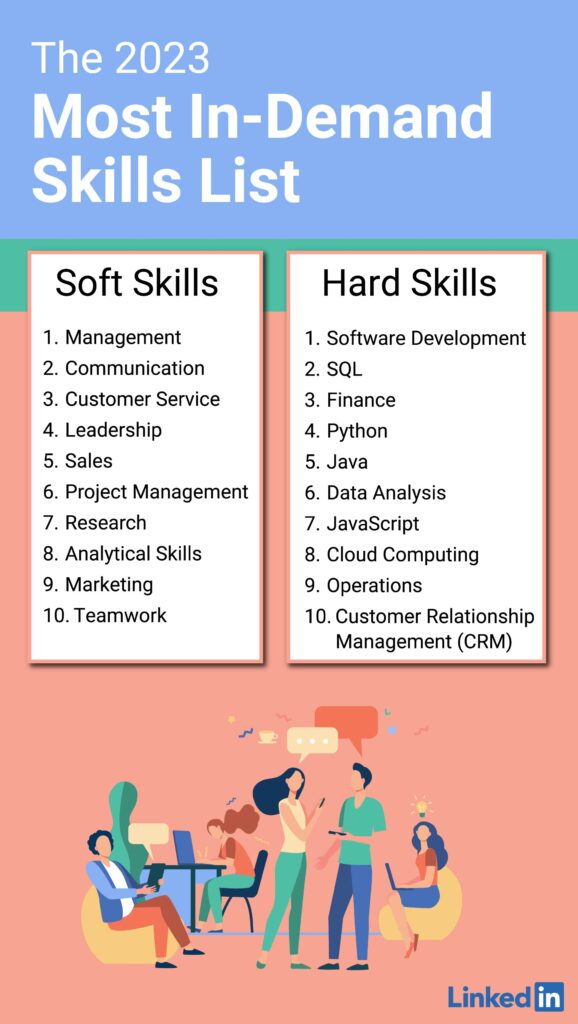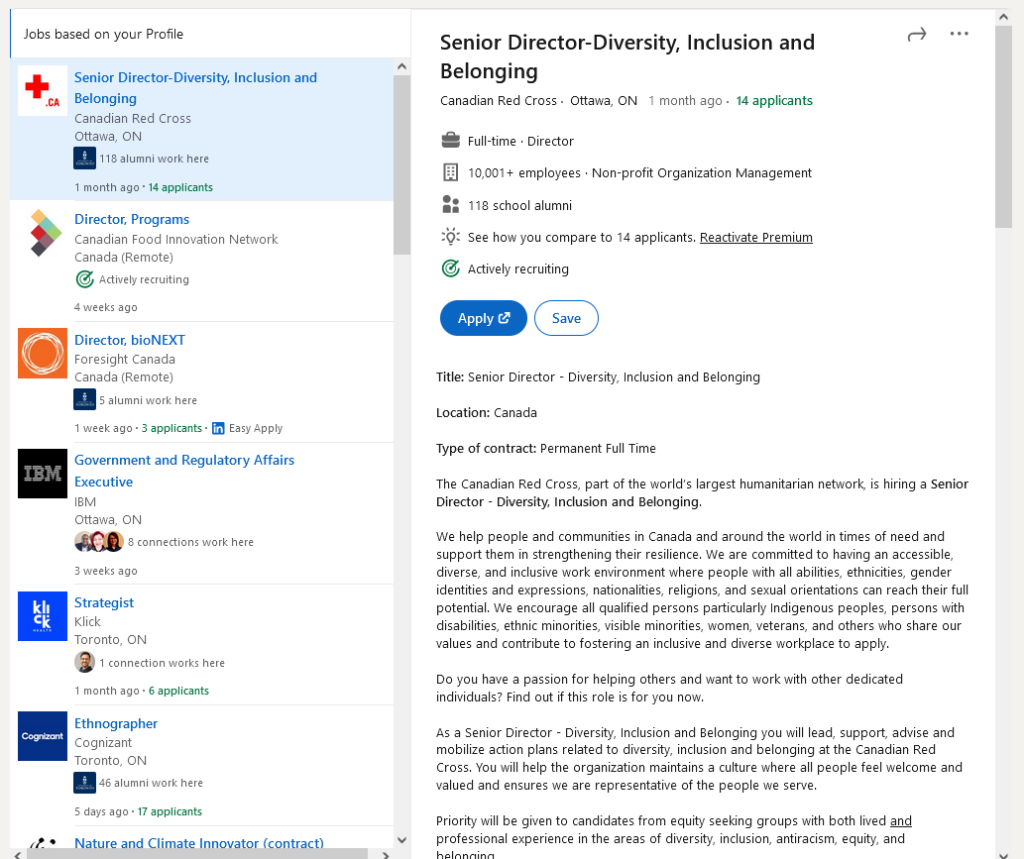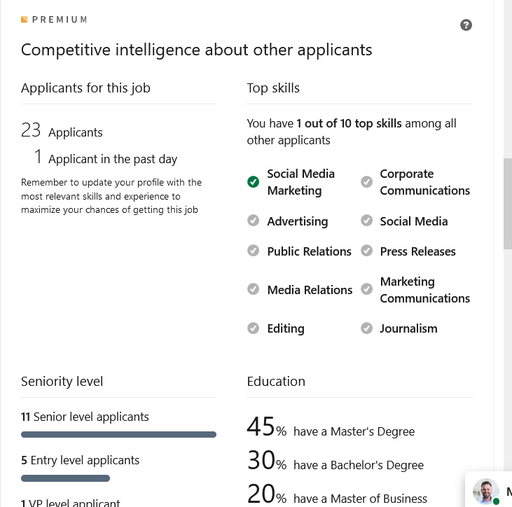When I was starting my career, I used to think about degrees a lot. I’d list them on my resume, all proud and shiny. But over time, I realized that nobody really cared what my degrees were.
They cared what skills and abilities I had. Having the right in-demand skills was the secret to getting hired.
In this article, we’re going to talk about skills to put on a resume. These are FANTASTIC skills that employers love.
And if you don’t have them, you can always learn them!
- Hard Skills
- Soft Skills
- Transferable Skills
- Job-Specific Skills
- How to Choose the Right Skills
- How to Present Skills on Your Resume
- Conclusion
- Frequently Asked Questions
- What are some key skills to highlight on a resume?
- How can I showcase my unique skills on a resume?
- What are some computer skills that are valuable to include on a resume?
- What are some examples of special skills to include on a job application?
- Should I include my hobbies or interests on a resume?
- What are some soft skills that employers look for on a resume?
Hard Skills
When it comes to creating a resume, hard skills are the technical abilities and knowledge that an individual has acquired through education, training, and work experience. These skills are specific and measurable and can be easily demonstrated through certifications, degrees, or work experience. Here are some of the hard skills that can be included in a resume:
1. Technical Skills
Even if you’re not choosing a career in tech, tech skills are in-demand in pretty much every industry. So adding tech skills to your resume can open up a lot of doors.
Technical skills mean that you can handle software, hardware, and tools to perform specific tasks. They can range from basic computer skills to more specialized technical skills.
Here are some examples of technical proficiency skills you could include on your resume:
- Proficiency in Microsoft Office Suite, including Word, Excel, and PowerPoint
- Knowledge of programming languages such as Python, Java, or C++
- Experience with database management systems such as MySQL or Oracle
- Familiarity with project management software such as Trello or Asana
- Expertise in graphic design software such as Adobe Photoshop or Illustrator
And if you don’t have these skills, no need to fret! With all the online learning platforms out there, you can often pick them up online. Here are some links to courses for learning skills:
- Exploratory Data Analysis in SQL (Data Science)
- Introduction to Python (Coding)
- Introduction to R (Coding + Data Science)
- Intro to Javascript (Coding)
- Understanding Machine Learning (AI)
- Social Media Marketing for Beginners
- Copywriting Basics (Marketing)
- User Experience Research (Product Testing)
2. Foreign Languages
For some jobs, proficiency in foreign languages is a really marketable skill that can set an individual apart from other job applicants. Fluency in a foreign language can help in communicating with clients, customers, and colleagues from different parts of the world.
Here are some examples of foreign language skills you can include in a resume:
- Proficiency in Spanish, French, German, or any other language
- Experience with translation software such as Google Translate or Babylon
- Knowledge of cultural norms and customs of different countries
3. Certifications
For a certain set of technical skills, you need a certification to show you’ve actually got the chops.
Certifications are a great way to demonstrate expertise and knowledge in a specific field. They are usually obtained through a formal education program or a training course and can be a valuable addition to a resume.
Here are some examples of certifications that can be included in a resume:
- Certified Public Accountant (CPA)
- Project Management Professional (PMP)
- Certified Information Systems Security Professional (CISSP)
- Certified Scrum Master (CSM)
- Cisco Certified Network Associate (CCNA)
If you’ve got these, put them on!
Soft Skills
So in addition to the world of technical skills, there are a ton of soft skills that look AWESOME on a resume.
Soft skills are harder to quantify, but just as important. In fact, LinkedIn’s list of in-demand skills shows how important soft skills are!

4. Communication
Effective communication is a super important soft skill that employers want. And there are two sides to it: speaking and expressing your ideas, and listening and understanding others’.
Strong communicators can use their superpowers to get things done in the office, building consensus and growing a reputation for being effective.
Communication is the bedrock of collaboration–making it the skill you need for teamwork.
Here’s a course from LinkedIn Learning for developing your communication skills:

5. Problem Solving
Problem-solving skills are valued by employers because they demonstrate an individual’s ability to think critically and creatively. Effective problem solvers are able to identify issues, analyze information, and develop innovative solutions.
They are also comfortable with ambiguity and able to work collaboratively with others to achieve common goals.
Pro tip: Problem solving is ALWAYS best demonstrated by examples. If you can say “X happened, so I did Y, and that led to Z,” you’re showing problem solving. And you can do this on a resume too.
6. Leadership
“Leaders make decisions.” That’s a definition I heard Dave Ramsey give once, and I love it.
Go watch the average workplace. People hate making decisions. They ask, wait to be told what to do, and don’t do ANYTHING without someone else deciding for them.
Then you know what happens? Someone comes in and starts making decisions (whether they have “leader” in their title or not). That person starts getting promoted.
Because they’re a natural leader. They make decisions.
Here are a few great LinkedIn courses to work on your leadership chops:
- Leadership Foundations (LinkedIn Learning)
- Top 10 Rules for Highly Effective Leadership (LinkedIn Learning)
7. Management
We often think of management and leadership as the same thing, but that’s not really true. Great leaders can be terrible managers, and vice versa.
But really, management is about organizing people to execute projects. If you’ve overseen people and done it well, don’t take that for granted. It’s management. And as I talked about in this post, managers get paid more because they handle complexity.
Transferable Skills
When it comes to creating a strong resume, highlighting transferable skills is essential.
These skills are those that can be applied across different industries and job roles, making them highly valuable to employers. Here are some key transferable skills to consider including on your resume:
8. Project Management
Project management skills is basically making something happen, and the skill of project management is needed in pretty much every industry.
When I started my career, I thought of project management as what the people who build bridges do (and it is!). But I quickly found myself managing research projects and figuring out how to get them funded.
No matter what industry you’re in, project management will help you succeed–whether you have a certification like a PMP or not. (And you often don’t need one.)
Project managers are doers. They get stuff done. And that’s why employers love them.
Some examples of project management skills to include on your resume might include:
- Planning and organizing skills
- Budget management skills
- Time management skills
- Leadership skills
- Communication skills
How to learn project management
- Foundations of Project Management (Free from Google!)
- Project Management Foundations (LinkedIn Learning)
- Scrum: The Basics (LinkedIn Learning)
- Become an Agile Project Manager (LinkedIn Learning)

9. Teamwork
Teamwork skills are also highly valued by employers. These skills involve the ability to work effectively with others to achieve common goals. They also involve the ability to communicate effectively, collaborate, and resolve conflicts.
Some examples of teamwork skills to include on your resume might include:
- Collaboration skills
- Communication skills
- Conflict resolution skills
- Leadership skills
- Adaptability and flexibility
10. Time Management
Time management skills are essential for any job role. They involve the ability to prioritize tasks, manage time effectively, and meet deadlines. These skills are highly transferable and can be applied across different industries and job roles.
Some examples of time management skills to include on your resume might include:
- Prioritization skills
- Time management skills
- Goal setting and planning skills
- Multitasking skills
- Attention to detail
By highlighting these transferable skills on your resume, you can demonstrate your value to potential employers and increase your chances of landing the job you want.
Job-Specific Skills
When it comes to job-specific skills, it’s important to tailor your resume to the specific job you’re applying for. Highlighting your relevant skills can make you stand out from other candidates. Here are a few job-specific skills that can come in handy:
11. Sales
The skill of selling gets onto a lot of our lists of high-income skills, and with good reason. Selling is the engine that drives every single business, and you don’t even need to be in sales to use it.
You can sell your ideas, sell yourself, sell your company, sell your team’s solutions, or sell your boss’ pitch.
There are so many great ways to use the skill once you have it.
Usually, we think of sales as requiring a few other skills to work:
- Communication skills: To sell, you need to be able to communicate.
- Negotiation skills: Sales takes negotiation because you’re always interacting with someone else’s needs and wants. Knowing when to push harder and when to compromise is super important.
- Knowledge: If you’re selling, you need to know your stuff. It might be that you know your product really well, or you know your audience, or both. But acquiring knowledge is foundational to the skill of sales.
Here are some great sales courses
- Sales Fundamentals (LinkedIn Learning)
- Business-to-Business Sales (LinkedIn Learning)
- Communication Skills Machine: Master Persuasion and Influence for Entrepreneurship, Business, & Life (Skillshare)
12. Customer Service
Customer service essentially boils down to listening to customers, understanding what they need, and giving it to them. If you’re considering a career in consumer services, you’ll need these!
We often don’t notice it unless it’s ridiculously good or bad: like when the server ignores you for 45 minutes and then brings you the shrimp chowder instead of the spaghetti.
To get better at customer service, get better at communication! Really, you need to communicate to customers. But more importantly, great customer service means listening to them and understanding what they need.
You can also take this LinkedIn Learning course.
13. Marketing
Marketing positions require a different set of skills than sales positions. But they work together to accomplish the same things.
Marketers help companies attract and retain clients. And that’s why they’re vital.
Here are a few skills to consider including on a marketing resume:
- Creativity: Marketing is all about coming up with new and innovative ways to promote a product or service. Creativity is essential in this field.
- Analytical skills: Marketing professionals need to be able to analyze data to determine the effectiveness of their campaigns.
- Project management skills: Marketing campaigns often involve multiple moving parts. If you can manage them, you’re golden!
How to learn marketing
These are some cool courses for learning digital marketing skills:
- Google Digital Marketing & E-commerce Professional Certificate (Coursera)
- Digital Marketing Strategy: Profitable Sales Funnel Fundamentals (Skillshare)
- Digital Marketing Foundations (LinkedIn Learning)
- Advertising on Facebook (LinkedIn Learning)

14. Analytical skills
Look at any job posting and you’ll see two words: “problem-solving.” Employers love to talk about problem-solving, even though they don’t even always know what it means.
They’re looking for analytical skills. Analytical skills are the skills required to look at all the parts of something, understand it, and make decisions or suggestions about courses of action to take.
For example:
- When a political staffer reads reports and briefs and advise a politician on a course of action.
- When a marketer looks at what’s working for acquiring customers and what’s not–and tells a boss how to get more.
- When a barista recognizes that X coffee is costing the company too much money and should be discontinued.
Analysis is gathering information and putting pieces together. And that’s why it’s valuable. Be a problem solver–employers love this skill!
15. Teaching
Teaching positions require a unique set of skills as well. Here are a few skills to consider including on a teaching resume:
- Patience: Teaching requires a great deal of patience. Being able to work with students who are struggling and helping them to succeed is essential.
- Presentation skills: Teachers need to be able to communicate effectively with their students. This includes being able to explain complex concepts in a way that is easy to understand. Presentation skills are really important!
- Organizational skills: Teachers need to be able to manage multiple tasks at once. This includes preparing lesson plans, grading assignments, and communicating with parents. Being organized is essential to success in this field.
How to Choose the Right Skills
It can be hard to choose the right skills for a resume. A candidate needs to showcase their abilities and expertise to the employer, but at the same time, can’t overwhelm the recruiter with irrelevant information.
Here are a few tips to help you choose the right skills for your resume:
1. Analyze the Job Posting
The first step to choosing the right skills is to analyze the job posting. The job description will give you a clear idea of what the employer is looking for in a candidate. Look for keywords that match your skills, experience, and achievements. These keywords could be technical skills, soft skills, or industry-specific skills.
Make sure to include these keywords in your resume. I love printing out a job posting and highlighting relevant skills!

2. Use LinkedIn’s Tools
If you have LinkedIn Premium, you can use the “competitive analysis” info to check if your skills fit a job posting.

3. Prioritize Your Skills
Prioritize your skills based on the job requirements. Put the most relevant skills at the top of your resume.
DO NOT include ALL your skills. Make sure the most prominent skills are the ones a recruiter or employer will see.
4. Use Industry-Specific Language
Use industry-specific language to showcase your skills. This will help the recruiter understand your expertise and experience in the field. For example, if you are applying for a marketing role, use marketing-related keywords such as SEO, PPC, social media marketing, etc.
5. Quantify your skills
Seriously, use numbers. Which sounds better?
- I have the skill of grant writing
- My grant writing has won $25,000 in funding
How to Present Skills on Your Resume
When it comes to presenting skills on a resume, here are a few key things to keep in mind.
- Tailor your skills section to the specific job you’re applying for. This means carefully reading the job description and highlighting the skills that are most relevant to the position.
- Use bullet points instead of WALLS OF TEXT. This allows you to clearly and concisely list your skills in a way that is easy for hiring managers to read and understand.
- Use action verbs (e.g.”managed,” “created,” or “analyzed.”).
- Use numbers. Again, this is so important and numbers help you demonstrate how good you are at skills.
Conclusion
All of these skills are ones you can use on a resume. But they’re just a start. Make sure to pay attention to job postings, and follow their lead for which skills you list!
And be honest and accurate when listing your skills. Don’t exaggerate or make false claims about your abilities–it will lead to frustration for both you and potential employers.
Finally, remember that your resume is just one part of the job search process. I’ve long preached that networking is a great way to get your resume to the top of the pile and help you get seen!
Networking, interviewing, and demonstrating your skills in person and on LinkedIn are also crucial components of landing your dream job. And don’t forget you can discover important skills by doing informational interviews!
By combining a strong resume with these other elements, you’ll be well on your way to success in your job search.
Now read: Want Tips on How to Network Like a Boss? Here Are 11 Actionable Tricks
Frequently Asked Questions
What are some key skills to highlight on a resume?
When it comes to highlighting skills on a resume, it’s important to focus on those that are relevant to the job you’re applying for. Hard skills like technical proficiency, language fluency, and project management are always valuable, but don’t forget about soft skills like communication, teamwork, and adaptability.
How can I showcase my unique skills on a resume?
One way to showcase your unique skills is to provide specific examples of how you’ve used them in your previous work experience. Another option is to create a separate section on your resume that highlights your unique skills and accomplishments. This can include things like awards, certifications, or specialized training.
What are some computer skills that are valuable to include on a resume?
Some valuable computer skills to include on your resume might include proficiency in Microsoft Office, experience with project management software like Asana or Trello, or familiarity with programming languages like Python or Java.
What are some examples of special skills to include on a job application?
Special skills can vary widely depending on the job you’re applying for, but some examples might include things like foreign language proficiency, experience with public speaking or presentation skills, or specialized training in a particular field. It’s important to think about what skills are most relevant to the job you’re applying for and highlight those on your resume.
Should I include my hobbies or interests on a resume?
Including hobbies or interests on a resume can be a controversial topic. While some employers may appreciate seeing a well-rounded candidate, others may view it as irrelevant information. If you do choose to include hobbies or interests, make sure they are relevant to the job you’re applying for and can help showcase your skills or personality.
What are some soft skills that employers look for on a resume?
Soft skills are becoming increasingly important to employers, as they can help determine whether a candidate will be a good fit for the company culture. Some soft skills that employers may look for on a resume include communication, teamwork, problem-solving, adaptability, and leadership. Be sure to highlight these skills on your resume and provide specific examples of how you’ve used them in your previous work experience.



